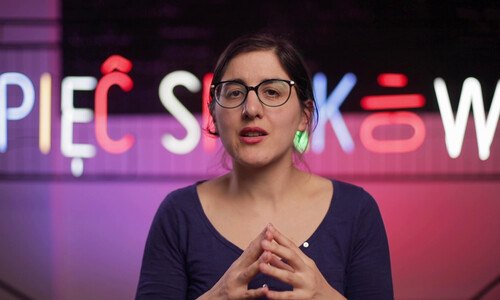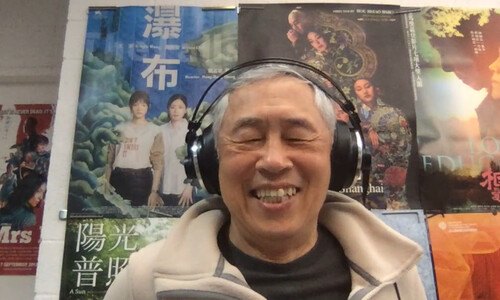A Confucian Confusion
Press Play to start
Theatrical Screenings
Muranów
Kinoteka 2
Online Availability
Additional Materials
Film description
What happens when art enters the realm of corporations? Is there any space left for real feelings in the world ruled by the logic of resentments and cronyism? Molly comes from a wealthy family and is the head of an advertising agency. She is equally successful in her professional and personal life. Her fiance, A-Chin, is the heir of a huge fortune and offers her business generous financial backing. Chi-Chi, her best friend from college, is her right hand in the company. But Molly’s agency is in trouble. On top of that, Birdy, the literary celebrity they promote, is accused of plagiarism. A series of misunderstandings between the protagonists culminates in the span of two and a half days, revealing the opportunism and hypocrisy of Taipei’s culture industry of the turn of the 20th century. In the world of the upper-middle class, working in culture itself becomes art for art’s sake.
The situation in all of Asia is terrible now. It’s not an economic problem, it’s not a financial problem, it’s not a political problem, it’s a serious cultural problem – said Edward Yang. A Confucian Confusion is the first and so far only attempt at self reflection: at examining what is wrong with trying to head into the 21st century with a 4th century BC ideology. Yang decidedly departs from the traditions of the Taiwanese New Wave and heads towards urban comedy and bitter-sweet farce. This style allows him to carry out modern cinema’s most biting critique of Confucian traditions.
text:
Maja Korbecka
Edward Yang
Born in 1947 in Shanghai. His father came from a southern province Guangdong, his mother from Hebei in the north of China. Born as the children of impoverished intelligentsia, they both worked as office clerks in the nationalist government structures. Two years after Yang was born, the communist party took over the reins in China, and the family moved to Taipei. Despite his fascination with literature and film, Yang chose to study engineering. After graduating, he moved to the US to continue his education in digital design. He spent seven years working as a coder in Seattle and then decided to return to Taiwan to pursue a career in film. In 1983, after creating his short film Desires, a part of an anthology film In Our Time, the founding oeuvre of the Taiwanese New Wave, Yang directed his almost three-hour-long debut That Day, on the Beach. Over the three decades of his career, Yang made a wide variety of films. His third feature, a postmodern tragicomedy Terrorizers, was a big box office success and a hit among the critics, bringing Yang the 1987 Silver Leopard at the festival in Locarno, and the title of the Best Film at the Golden Horse Film Awards. Yang’s later films – the award-winning, epic reconstruction of Taipei of the 1960s, A Brighter Summer Day, the comedy A Confucian Confusion, and the gangster film Mahjong – turned out to be box office flops. Yang’s last film, the Japanese co-production A One, and a Two, brought him the Best Director award at the 2000 Cannes Film Festival. After the Cannes win, Yang started working on several different projects – the animation The Wind, a website with auteur comic books Miluku.com, and the script for the adaptation of Lust, Caution, but did not finish any of them. Yang died of colon cancer in California in 2007.
1982 W naszym czasie / Guangyin de gushi / In Our Time (segment Oczekiwanie / Zhiwang / Expectation)
1983 Tego dnia na plaży / Haitan de yi tian / That Day, on the Beach
1985 Historia z Tajpej / Qingmei zhuma / Taipei Story
1986 Terroryści / Kongbu fenzi / Terrorizers
1991 Jasny dzień lata / Gulingjie shaonian sharen shijian / A Brighter Summer Day
1994 Konfucjańska konsternacja / Duli shidai / A Confucian Confusion
2000 I raz, i dwa / Yi Yi / A One and a Two






